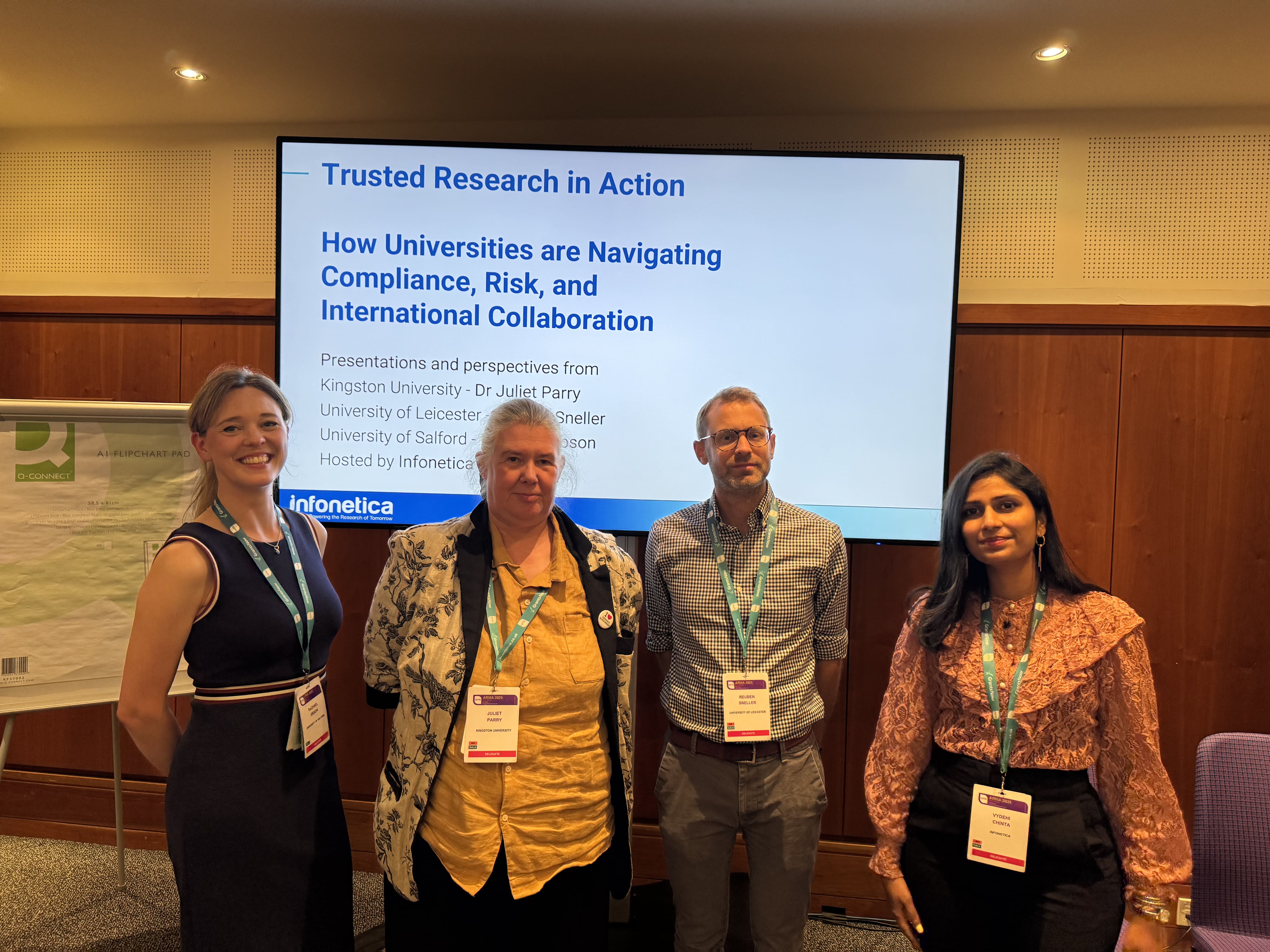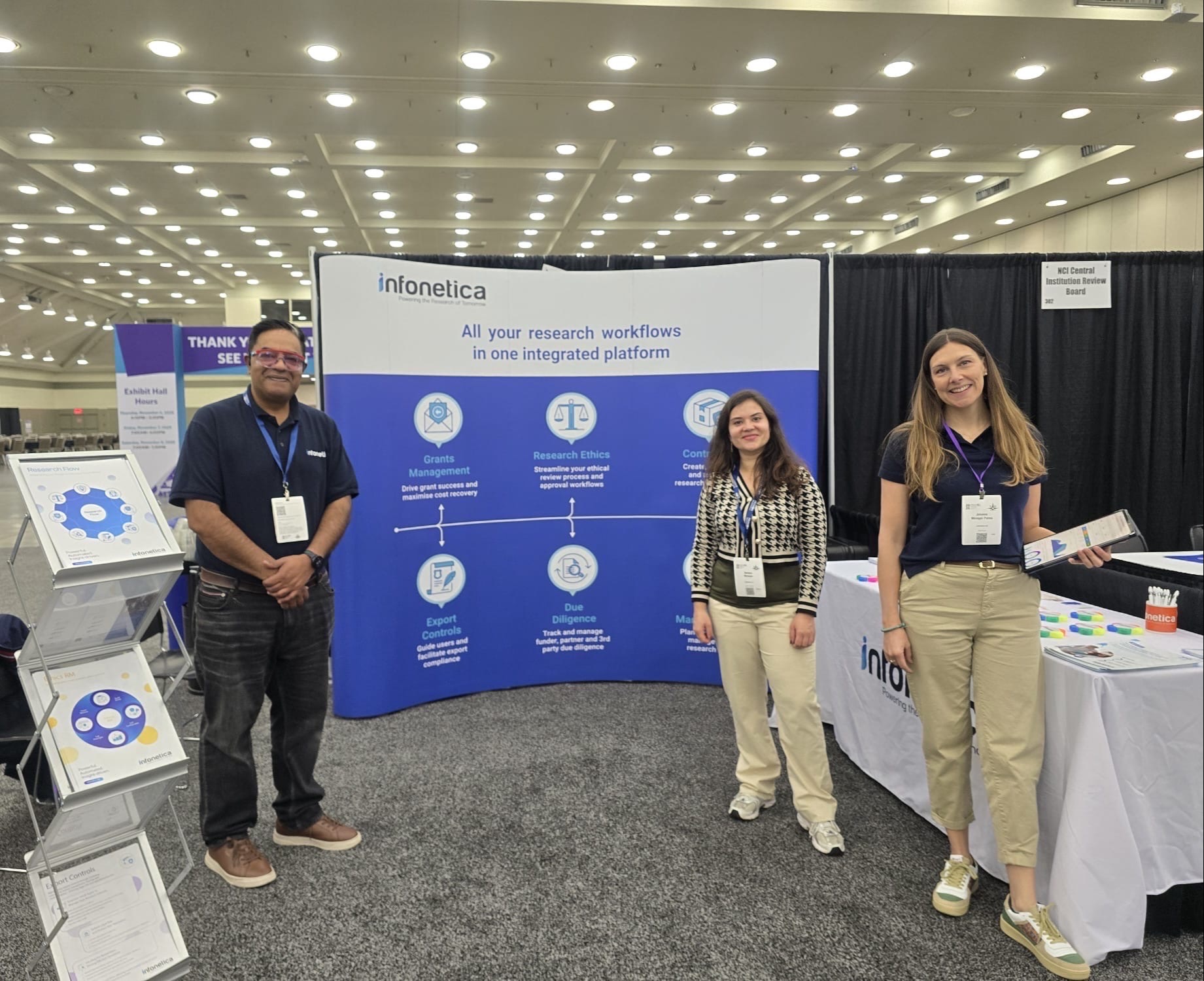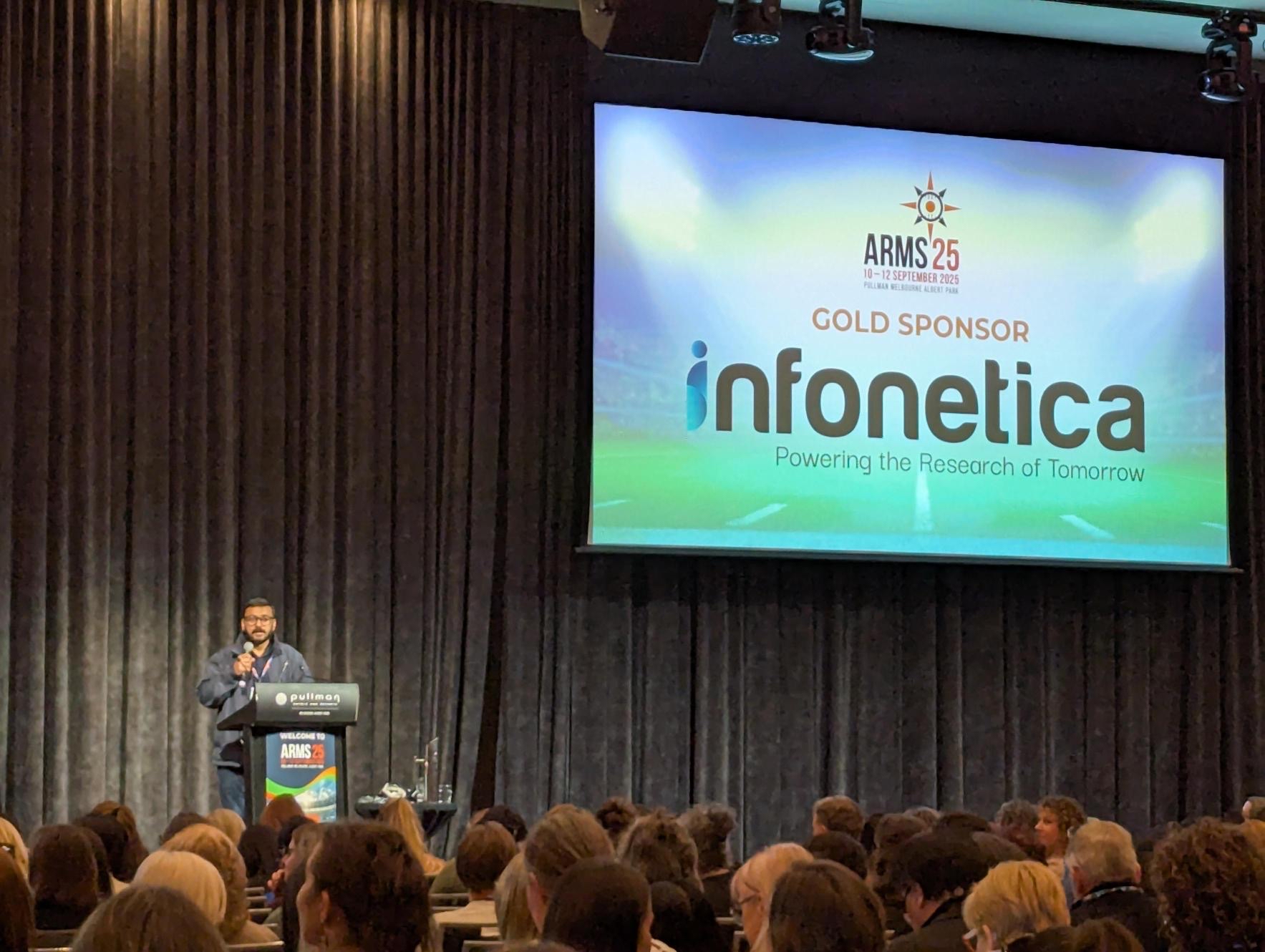At the ARMA 2025 Conference in Edinburgh, we hosted a customer-led session on Trusted Research, showcasing how three universities: Kingston, Leicester, and Salford are using Infonetica Export Controls to build scalable compliance processes in the face of rising regulatory scrutiny and limited resources.
Though very different in structure and research intensity, all 3 institutions are using Infonetica’s platform to bring clarity and oversight to their Trusted Research efforts. As Reuben Sneller of Leicester noted:
“We’re three very different universities, so hopefully you’ll see something today that works for you and your institution.” – Reuben Sneller, Trusted Research Officer, University of Leicester
Shared Challenges
Despite their differences, all three institutions face a common set of challenges:
- Lean teams are being expected to manage large volumes of research activity
- Unfunded or informal projects are falling outside standard processes
- Researchers need support to understand unfamiliar compliance obligations and identify and manage risk
- Without centralised workflows or oversight, governance was fragmented, leading to duplication, missed risks, and uneven engagement across faculties
Each university is using our product in ways that reflect their own unique context:
The University of Salford:
- Small team with an international collaboration focus
- Reducing bureaucracy for researchers by using integrated workflows across Infonetica’s Ethics RM and Trusted Research solution
- Captures key decisions and audit trails across the institution
Learn more about how Salford is using Infonetica Export Controls
"Limited resourcing means we need to work smarter." – Rachael Gibson, Research Governance Manager, University of Salford
Kingston University:
- Low-intensity research profile with widespread unfunded activity
- Introduced a structured, checklist-driven workflow to ensure risk is captured early
- Empowering researchers with user-friendly guidance
Learn more about how Kingston is using Infonetica Export Controls
"We wanted a tool to keep everything in one place and provide a centralized evidence base, accessible to anyone with the right permissions - not just the person conducting the checks and Infonetica’s solution gave us this." – Juliet Parry, Head of Strategy, Governance and Funding, Kingston University
The University of Leicester:
- Research-intensive, with high volumes of reviews and a significant amount of unfunded research)
- Transitioning from manual tools to Infonetica’s Trusted Research solution
- Embedding due diligence and governance groups into their processes
Learn more about how Leicester is using Infonetica Export Controls
"We’re moving to mandatory research logging using Infonetica. It will help capture unfunded work too. That’s often where risk lies: what we don’t know about." – Reuben Sneller, Trusted Research Officer, University of Leicester
From guided workflows and centralised oversight to support for unfunded work, Infonetica Export Controls is helping institutions focus on risk without overburdening staff, laying the foundation for secure, scalable research in an increasingly complex global environment.
Once you’ve read the 3 case studies attached above, why not take a look at the Q&A from our panel session for additional insights?
Q1: Integration of Export Controls and Ethics Modules
Question: Does Infonetica Export Controls interface with Infonetica Ethics, and can project data be shared between them?
Answer:
Yes, it’s all in one system as a central information repository that supports both ethics and trusted research workflows. The shared project data can be reused across both modules – they system can be configured during implementation to allow this.
Q2: Logging Unfunded Research
Question: Can Infonetica Export Controls capture unfunded research projects?
Answer:
Yes, if your institution chooses to mandate logging of all research, unfunded projects can absolutely be included. You can set up a simplified front-end to capture project outlines and review risk. We acknowledge that for prolific researchers, this could be burdensome, so one option is to have them log an annual summary. That way, institutions can identify who to monitor more closely for risk. Ultimately, it's about configuring the process to match your risk appetite and oversight needs.
Q3: Early Risk Detection in Cross-Disciplinary Work
Question: How can we detect risk early in projects that aren’t obviously in scope, such as social science collaborations with high-risk partners?
Answer:
We ask general questions of our researchers like "Are you working with an international partner?" and follow-ups about the type of collaboration, country, and research nature – this helps to reveal hidden risks. However, researchers often don’t recognize what is considered "risky," so training is essential. We do outreach via department meetings, PGR inductions, and one-on-ones. We also rely on colleagues in contracts and finance to flag concerns during proposal development.
Q4: License Rejections
Question: How often are licenses rejected?
Answer:
Rarely. At Kingston, we’ve had only one license application… and it was rejected. At Leicester, none have been rejected, though we’ve received "license required" notices, which delayed work. We try to communicate that licenses can take six months, so early engagement is crucial. Transparency with researchers helps manage expectations.
Q5: Trusted Research Outside Research
Question: Do you receive queries related to trusted research outside the academic research domain?
Answer:
Yes, occasionally. This includes education partnerships, procurement, and visitor access. These aren’t always managed through research offices, so our processes aren’t always equipped to deal with them. However, we’re beginning to collaborate with other teams like procurement and estates to ensure risks are managed holistically. Some institutions treat contentious or politically sensitive activities as "trusted research" by default.
Q6: Monitoring International Legal Risks
Question: How do you account for legal risks in countries with changing laws that could affect research?
Answer:
We include travel risk questions in our ethics and trusted research forms. If someone is working internationally, especially in sensitive areas, we flag it. Our travel and insurance teams also have risk policies. We’re working with IT security and procurement to include checks for international compliance. It’s not perfect, but cross-team collaboration is key.
Q7: AI and Infonetica
Question: Could Infonetica or AI suggest revisions to descope a risky project instead of researchers guessing?
Answer:
Yes, you can configure Infonetica’s solution to prompt users to revise their project based on flagged responses. The system can log the original version and the revised version. Researchers can then resubmit. However, the AI currently serves more as a helper, not a decision-maker. Final calls rest with human reviewers.
Q8: Timing of Risk Identification
Question: How much notice do researchers typically give when seeking a trusted research check?
Answer:
It varies: some researchers contact us early, which is great. Others come just before publication or contract signing. We try to train people to engage earlier. In some cases, like joint publications with sensitive countries, the library flags papers post-submission. Ideally, researchers should engage with trusted research processes during the proposal or pre-award stage.





.png)
.png)









.jpg)

.png)






